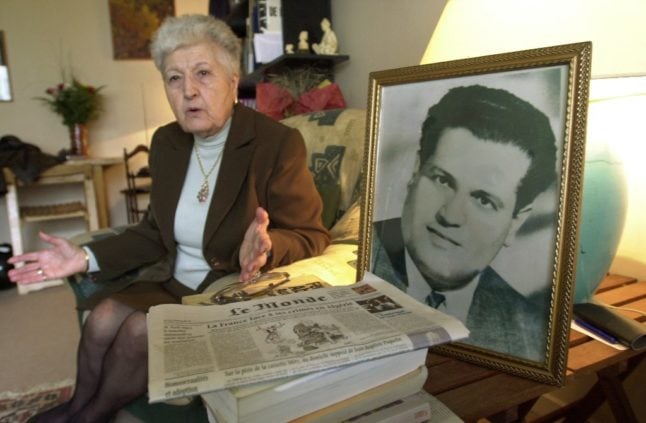Historian and ambassador Krister Wahlbäck and cabinet office archivist Bo Hammarlund reveal the existence of the documents, which indicate Wigforss’ approval of loans to Hitler’s Germany, in a full page debate article in Dagens Nyheter on Sunday.
The loans served to increase Swedish exports to Nazi Germany, of far greater importance, the pair argue, than opening the country’s borders and train lines for the use of German troop movements – against which Wigforss was a renowned opponent.
Ernst Wigforss, who died 30 years ago, retains a revered place in the hearts of many in the Social Democratic party and is argued by Wahlbäck and Hammarlund to fulfil the role of the party’s “socialist conscience”.
Wigforss was vocal in his criticism of the prime minister and Social Democrat party leader, Per Albin Hansson, for allowing the German Division Engelbrecht transit through Sweden, assisting the Nazi invasion of Norway.
The new document is a letter received by Wigforss in April 1941 and undersigned by the director of Skandinaviska Banken, Ernst Herslow. The document was never entered into the official record.
The letter summarized a conversation between Wigforss and Jacob Wallenberg earlier in the day. The conversation concerned the approval of bank credits to Germany to enable them to pay Swedish shipbuilders for services rendered. For this the bank required state approval.
“The minister expressed his understanding, that it would be desirable for the credits to be provided,” Herslow wrote.
Wahlbäck and Hammarlund write that such a decision would most likely have been shared with the cabinet but, they point out, no note has been made of the issue by any other minister.
The diary of the then head of the Riskbank, Ivar Rooth, however indicates that the both he and the Swedish foreign office (UD) held strong reservations over the bank credits which would enable Germany to supply less goods in return to Sweden for iron ore and other materials crucial to the war effort.
The loans amounted to around 40 million kronor, a large sum of money in those days, Wahlbäck and Hammarlund write.
They continue to argue that the credits provided in April 1941 were the first breach in Swedish resistance to Nazi Germany’s demands. The credits, it is noted, appear to have been given in the face of the minimum of coercion.
The result of the approval of the bank credits meant that Sweden avoided demands from Germany for direct Swedish state aid and that Swedish boat yards could continue to build vessels for Nazi Germany’s navy.
Instead of state credits, of the like that the Swedish state offered (but never provided) to Soviet Russia in the “Russian precedent” of 1940, the pair argue that Sweden instead provided something akin to state-sanctioned “export credit guarantees”.
Wahlbäck and Hammarlund conclude from the document find that there is more to be learned from Sweden’s actions during the war and the involvement of certain individuals in regard to dealings with Nazi Germany, the source of much irritation among the allied powers.


 Please whitelist us to continue reading.
Please whitelist us to continue reading.